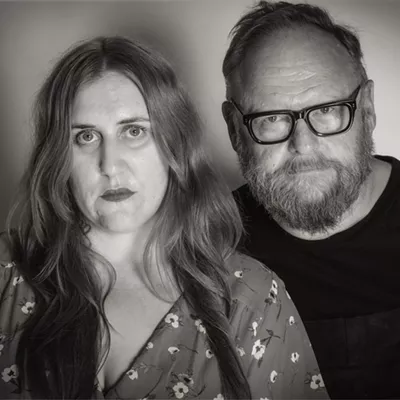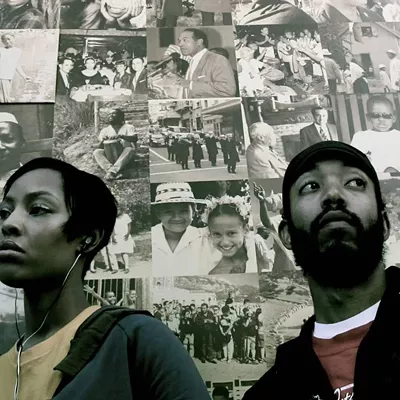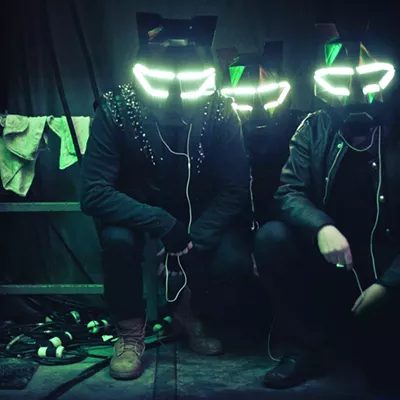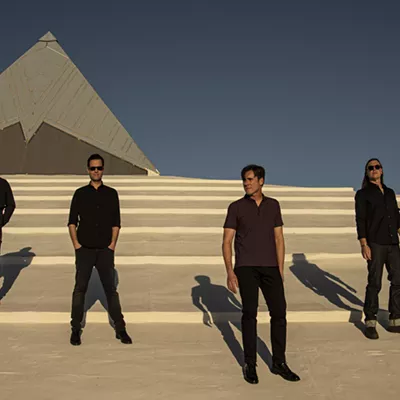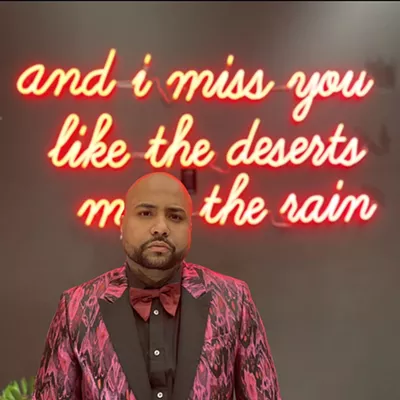It's hard to believe it's been 10 years since the Bellingham, Wash., band--led by Ben Gibbard and Chris Walla--first began making ripples, but indeed it has been, and in that time, Death Cab for Cutie have become yet another band from fertile Washington to build their own pillar on the institution of rock.
Perhaps even more important is the fact that, 10 years down the road, Death Cab for Cutie is a thriving specimen of a dying breed. Most bands these days may not know how to record to multi-track cassette tapes, or how to build a fanbase without MySpace or Facebook. Death Cab for Cutie knows all of this well, and the reissue of Something About Airplanes is a sign of the times: It may be one of the last decade-anniversary reissues the music world sees from a bygone era of independent music, before the Internet transformed the way people listen to and learn about music.
The reissue of Something About Airplanes also is a reminder that Death Cab for Cutie has always been something special: Even with yet another Grammy-nominated album under their belts (this year's Narrow Stairs), Something About Airplanes is still a stand-out record.
Death Cab for Cutie drummer Jason McGerr agrees.
"I remember the day when I first heard 'Fake Frowns' on the radio," he said. "It was a really exciting time; the record had a really validating feel and sound immediately, like it was going to be around for a bit."
While McGerr was not yet a member of Death Cab for Cutie back in 1998, he was still a part of the Bellingham music community. "(Death Cab for Cutie bassist) Nick (Harmer) and I were playing in a band at the time Ben and Chris were recording that record. Nick and I were on one end of town making music together, and Ben and Chris were on the other," he explained. "Even though I didn't play on the record, I felt like I knew the whole record, front to back, and it was good to see my friends put something out in the world that they were so proud of."
One thing that hasn't changed in 10 years is the need for a band to stand out, and, said McGerr, what stood out about Death Cab for Cutie was what he calls their "intent."
"The real intent came from the delivery of the material, how the band played the songs, how the songs were recorded. There's a real ferocity about it, an intent, that lyrically and musically and production-wise rang true to everyone in the little town of Bellingham, and it rang true in Seattle as well.
"A lot of people started paying attention. Radio stations were playing it, and there was this buzz in the air about this little Northwest, Bellingham band called Death Cab for Cutie. The rest of us who were in the community and on the sidelines were excited; we were proud. The band intended to go somewhere and do something, to get out of Bellingham and drive further south down the I-5 corridor, and eventually make it to the other side of the country in a shitty old van, and, I mean, the rest is history."
This same intent and ferocity is still present on Narrow Stairs (Atlantic), except that these days, Death Cab travels around the world in a tour bus and on airplanes, with roadies.
"I think you can draw a pretty straight line from Something About Airplanes to Narrow Stairs," said McGerr. "I think there are hints as to where the band is going, and there are also tips of the hat from Narrow Stairs back to Something About Airplanes."
Narrow Stairs shows Death Cab contemplating the treacherous moments in life: Metaphors of caution and danger are everywhere, from thin ice to climbing down into a canyon to the album's title. The band makes brilliant use of empty spaces within songs, of deceptively simple melodies and full-on guitar riffs. It's an album that could only have been released by a wiser, more mature Death Cab for Cutie, and yet it still rests firmly on that same energetic and earnest foundation the band built back when they were living in Bellingham.
"When I close my eyes and envision where the band was at that time," said McGerr, "it sort of is a time capsule. It takes you back to rolling up in a shitty van, and makes you feel like you're on a sticky, duct-taped, sweaty stage with broken cords and dim light and lots of smoke, or something, so there's this youthful, historic teleport that happens every time I count off one of those songs. It makes me play like I did 10 years ago."
As the older, wiser Death Cab breathes new life back into their older songs, the older songs keep Death Cab young. But Death Cab for Cutie doesn't need that kind of rejuvenation: These days, they're better than ever. Something About Airplanes is just another reminder, to invoke an oft-used pun, that there's always been something about Death Cab, even though it took several years for the rest of the world to notice.
Said McGerr, "We were out being the blue-collar, door-to-door salesmen, for years and years and years. The fact that we were allowed to be a band and develop as individuals, players and as a group of people, for all those years, and the fact that we just stood the test of time, (while) society changed its opinions ... and we've just stayed a constant--that's what has allowed for a broad demographic and appeal after all these years. It's like a road sign that's always there when you pass it. I don't think we're going anywhere. I mean ... we're still going to continue putting out records as long as it's fun to us. That's been the M.O. since day one."
Here's to 10 more years, with Death Cab for Cutie still driving on with intent and intensity.

